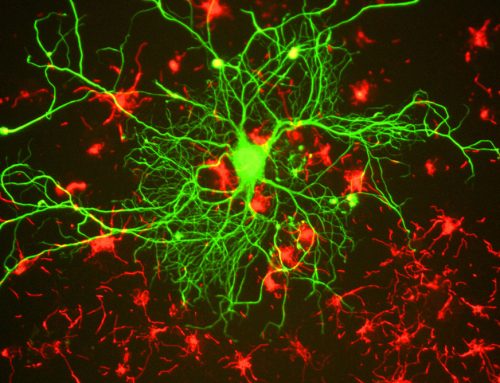Depression in the Menopause Transition: Stress and inflammation as pathways of risk
2020 Award: $31,107
In the transition to menopause (perimenopause), depressive symptoms are very common and there is a 2-4 fold increased risk to develop Major Depression (MDD) when compared to the premenopausal stage. Erratic changes in ovarian steroid hormones including estradiol (E2) seem to increase the risk for MDD, especially in women who have experienced recent life stress (e.g., divorce, death of loved one). So far, the precise biological pathways by which high E2 variability and stress lead to MDD are poorly understood. With this project, we will investigate pro-inflammatory processes as one potential pathway of risk.
Need/Problem: The menopausal transition is associated with a 2-4 fold increase in risk for major depression (MDD) and other inflammatory diseases, substantial psychosocial stress, and a dynamic ovarian endocrine environment with significant day-to-day fluctuations in estradiol (E2). Previous studies from our group suggest an increased MDD risk for women with high E2 variability, especially for those experiencing recent stressful life events. While the pathways through which high E2 variability increases MDD risk in the menopause transition in the context of stressful life events are still poorly understood, clinical and pre-clinical studies suggest pro-inflammatory processes as one possible candidate mechanism. To date, no human studies have examined the role of E2 variability in modulating stress-induced pro-inflammatory processes and depressive symptomatology. This represents an important gap in knowledge of female depression risk and one that the proposed research intends to address.
Grant Summary: As part of a parent study using a randomized-controlled trial design, this study will determine the role of E2 variabilityin pro-inflammatory processes and depressive symptoms in women in the menopausal transition within the context of stressful life events.
Goals and Projected Outcomes: The results of this research will provide mechanistic insight into the pathway(s) through which E2 variability increases MDD risk in the menopausal transition. This addresses a major gap by advancing our understanding of the role of E2 fluctuation as a modulator of pro-inflammatory stress reactivity and depressive symptoms. The results will advance our understanding of mechanisms which underly hormone-induced affective state change more generally – a transdiagnostic feature of most mental illness.

Serena Fiacco, PhD
Grant Details: A randomized, double-blind, placebo-controlled design will be used to test: 1) the extent to which E2 variability modulates pro-inflammatory processes; 2) whether indicators of pro-inflammatory processes mediate the relationship between E2 variability and depressive symptom severity in the context of recent stressful life events; and 3) whether stabilizing E2 variability with 8 weeks of transdermal E2 will normalize indicators of pro-inflammatory processes and, in so doing, decrease depressive symptom severity.




